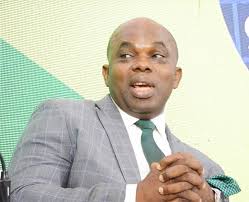ThinkBusiness Africa has challenged calls to raise the Sugar-Sweetened Beverage (SSB) Tax in Nigeria from N10 per litre to N130 per litre. The group made its position clear in a statement it released on Monday, following a report by the Corporate Accountability and Public Participation Africa (CAPPA) in May.
The CAPPA report, titled “Junk on Our Plates: Exposing Deceptive Marketing of Unhealthy Foods Across Seven States in Nigeria”, alleged that companies were using culturally related messages to market their drinks and were adding to health problems in the country. The report also called for a dramatic increase in the SSB Tax from N10 to N130 per litre.
It said this policy was necessary to cut down the consumption of sugary drinks and to help reduce health problems like diabetes, obesity and high blood pressure. The report insisted that many health issues were directly tied to the rise in soft drink consumption in the country.
However, ThinkBusiness Africa challenged these recommendations in a counter-statement on Monday. The group described CAPPA’s proposal as “statistically inconsistent and economically risky.”
It explained that the data used by CAPPA were outdated and not a true reflection of the current state of health in the country. “CAPPA draws its main conclusion from outdated or mismatched data, for example, by focusing on obesity trends amongst sedentary women in the city, while making policy recommendations primarily for young men — the group it says drinks more soft drinks — this approach is flawed.”
The group further explained that there is no clear, documented link tying health problems directly to the N10/litre tax. It insisted there should be a proper evaluation first. “You cannot propose a 1,200 per cent increase in a tax without first evaluating the effects of the existing policy. Policy decisions must be based on evidence and not just urgency. The risk of overreach is high — both in economic disruption and in losing public trust.” Dr Ogho Okiti, Chief Executive Officer of ThinkBusiness Africa, said in the statement.
Dr Okiti also addressed the complexity of the industry. He explained that many small businesses — vendors, distributors, and small producers — will suffer if the policy is implemented without proper consideration. “Some people treat SSBs as the only cause of health problems in the country, ignoring many other factors. Urbanisation, income, education, processed food consumption, and a sedentary lifestyle all affect health. So we shouldn’t blame it all on drinks.”
He explained that the industry already bears heavy taxes — 30 per cent corporate income tax, 7.5 per cent VAT and 3 per cent education tax — adding to a total effective tax of about 45 per cent. “So adding N130 per litre will put more pressure on businesses, raise prices for consumers, and put jobs at risk in both the production and distribution chains.”
Dr Okiti also questioned whether this policy was necessary when per capita sugar consumption in Nigeria is low. “The National Sugar Development Council says per person in Nigeria consumed about 6.9kg of sugar in 2018 — much lower than in many West Africa countries. So we shouldn’t portray the country as a place with high sugar consumption.”
He called for more transparency in the collection and use of the SSB Tax. “The policy came into force in 2022, but we have no clear account of how much has been raised or how it has been used. If health is the main aim, then the government should show how the funds are helping health care delivery.”
ThinkBusiness Africa made it clear it is not against health measures. But it insisted policy should be based on facts and consideration of all stakeholders — health, businesses, consumers and workers. “We must avoid policy decisions driven by urgency instead of careful thinking. Rising inflation, unemployment and slow growth in manufacturing all require careful consideration.”
